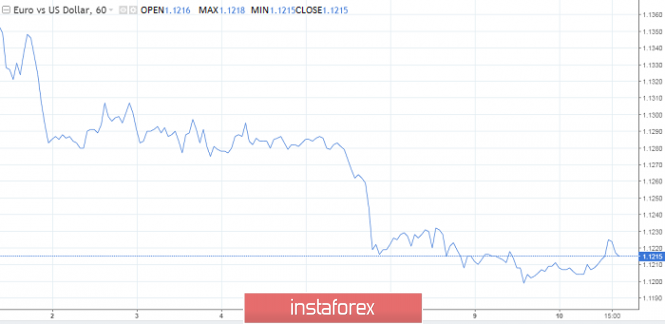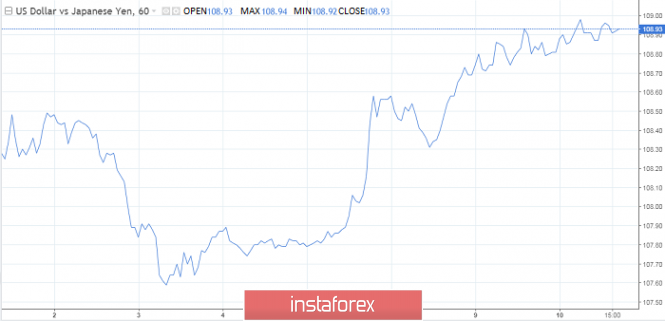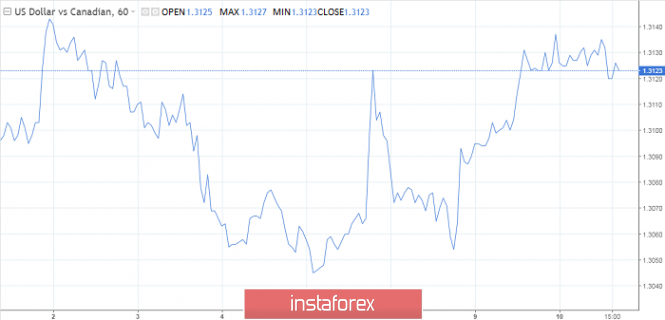
Jerome Powell will begin his two-day speech in Congress today. In the coming days, the dynamics of the dollar will largely depend on the Fed chairman's tone and his economic comments. In anticipation of an important event, the dollar index froze near highs reached as a result of the publication of strong statistics on employment in the United States.
The questions that are most interesting to the market are: has that anxious time come when easing of monetary policy is necessary to save the country from a recession? Is there enough uncertainty in US trade policy to justify a rate cut while the economy is fine?
The futures market has now significantly reduced the likelihood of a rate cut by 50 bp at the meeting in late July from 40% to less than 2%, and in 2019 - from 65% to 41%. Mitigation is seen as a safety net, aimed at changing the slope of the yield curve - an indicator that accurately predicts recessions over the past 50 years.
It is clear that the market overreacted to the testimony about the US central bank's readiness to reduce the rate. The growing risks of the ECB's earlier reaction to the problems of the eurozone economy are supporting sellers of EUR/USD. A need for ultrasoft monetary policy in Europe, said Benoit Coeure. Following him, a dovish rhetoric noted from Philip Lane. According to the leading economist of the ECB, the region is in dire need of a monetary stimulus due to weak inflation and the threat of weakening GDP growth.
According to Bloomberg respondents and the derivatives market, the European regulator will declare its desire to lower rates at the next meeting and possibly revive QE. It will most likely begin to take action in September. What if the prediction is wrong and the central bank starts taking action as soon as possible? In this scenario, the euro cannot escape from a powerful blow.
This is a bit later, but for now traders are significantly focused on Jerome Powell, who may well overshadow the minutes of the June meetings of the Fed and the ECB. He can both confirm the readiness to reduce the rate in July and put an end to it. In the second case, Powell risks provoking a collapse of US stock indices, which is already difficult to keep at record highs. It is worth noting that over the past two decades, the belief in easing the Fed's policy was not a long-playing driver for the S&P 500. The stock index fell after the expected earnings of issuers of shares for the next 12 months went down to zero. Now the indicator has dropped to 3% from more than 20% in December.
The S&P 500 correction is an argument for buying safe-haven assets, including the yen, franc and gold. Powell can delay it, but not stop it. His neutral position will allow euro bulls to grab the $1.12 mark, while the hawks drop the top pair.

As for the yen, it can resume growth in tandem with the dollar in the region of 107.50. This will happen if the Fed recognizes the need for monetary easing.

Bank of Canada
This is perhaps the only central bank in the world that has not begun to talk about policy easing, and everyone is looking forward to when this happens. At the May meeting, financial regulator officials remained optimistic, calling the slowdown in the economy a temporary phenomenon. Since then, the first signs of weakness have appeared. Retail sales in April almost did not increase, the number of employees in June decreased. However, in May, the labor market set a new record, and wage growth accelerated. The picture is unclear, and the Bank of Canada is likely to prefer to wait for new data before initiating talk about lower rates. If officials find that recent weak performance means nothing, USD/CAD will continue to fall to the lowest level in 1.5 years. A long-term low could begin to form for the USD/CAD pair only when the central bank becomes cautious.

